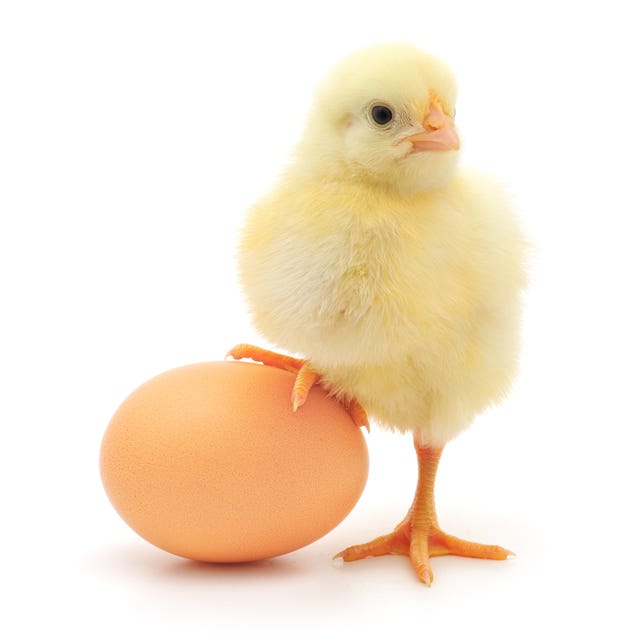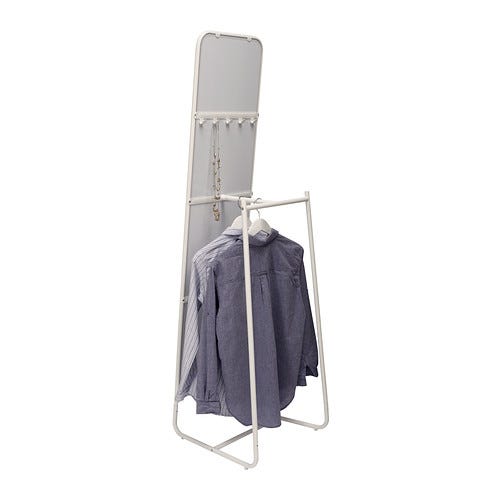So What, Who Cares (vol 2, issue 41) Which came first, the organic chicken or the organic egg?
Hello! I am physically back in civilization, but it may take a few days before my brain comes down from 7000 feet above sea level. I have spent much of today thinking about the theory of jet lag as explained by William Gibson in Pattern Recognition:
She knows, now, absolutely, hearing the white noise that is London, that Damien's theory of jet lag is correct: that her mortal soul is leagues behind her, being reeled in on some ghostly umbilical down the vanished wake of the plane that brought her here, hundreds of thousands of feet above the Atlantic. Souls can't move that quickly, and are left behind, and must be awaited, upon arrival, like lost luggage.
I think there's a theory of post-vacation lag in here somewhere. How do you handle re-entry after stepping out of your daily life for a few days? Share your best practices via email or Twitter.
*

There's a growing problem in the U.S.'s organic chicken industry: The demand for organic chicken and organic eggs is great, and there is not enough domestically produced organic feed for the fowl. As a result, American farmers are importing their organic chicken feed from China, India and Argentina.
So what? If you're trying to make dietary choices that are (presumably) more environmentally conscious, finding out that your organic eggs were produced by a chicken whose diet has a considerable carbon footprint may give you pause.
Who cares? Fans of irony? The U.S. is one of the world's leading producers of soybean and corn, so importing those crops seems a tad like bringing coals to Newcastle.
However, U.S. farmers simply aren't growing organic feed crops. First, they're very labor-intensive compared to conventional commodity crops. Second, they're not sufficiently profitable. U.S. farmers are doing fine with conventional crops and have very little incentive to change.
Chinese farmers, on the other hand, perceive a huge market opportunity and are hustling to take advantage of it -- both domestically and abroad. A sure sign that we're about to see some serious money in the world's emerging organic farm market? Hedge funds are betting on organic food producers and distributors in China.
*
Ikea has seen the future, and it involves the sofa taking a back seat to a table.
Marcus Engman, the head of design for Ikea Sweden, says that the world's increasing urbanisation means people living in smaller spaces, and that means a sofa will have to earn its keep. What's more, the living room configuration of sofa-pointed-at-TV is becoming increasingly irrelevant in a wireless, streaming world; he predicts that our current media consumption will shift our attention toward tables (where we prop up our personal media devices, host gatherings or log into work) and away from storage (because you can't stick digital files in Bill bookcases). The whole trend piece is a fascinating look at the very near future according to one retailer.

So what? An item from Ikea springs into being once researchers have studied how people live across multiple cultures -- for example, after studying family routines in Shanghai, Mumbai, Stockholm and New York City, researchers concluded that no matter how slow or fast people move in the morning, women would always spend more time picking out clothing. That insight led to the Knapper, a freestanding mirror with a clothing rack on the back. And thus does Ikea take the realities of people's lives, then subtly reframe them via different home items.
Who cares? Other retailers, who can study how Ikea's reframing of products across different cultures allows it to sell the same basic array of products all over the world, and thus make a boatload of money working on a very simple model: Volume. By producing a lot of the same stuff over and over again, Ikea can streamline the production process and bargain for low materials costs -- and they can keep costs low for consumers.
Clothing retailers have already seen the risks of branching out beyond a few core lines (vol 2, issue 16), and American retailers have wobbled badly in other markets when they didn't correctly read the culture (Gawker's read on why Target failed in Canada is an incisive read).
Ikea's playbook is similar to Trader Joe's -- and it's interesting how both brands focus on bringing quality goods to customers at dramatically lower price points, thanks to tightly controlling the SKUs on display and the chain of production for goods (vol 1, issue 56) -- and how both companies go out of their way to pay their employees better than the rest of retail (vol 1, issue 14).
But who really should care? You, Ikea shopper. The retailer isn't solely reactive: it has a very specific idea of what home life should be like, and it won't hesitate to promote it. (see also vol 1, issue 9)
Ikea is developing products that will encourage social interaction among household members; Engman says socializing through devices like smartphones is eroding togetherness, and that togetherness is an essential part of home life. Hence the home retailer's interest in encouraging the way people should live, one flat-pack product at a time.
*
Your pop culture bracketology note of the day: I feel like the PBS vs. NPR bracket tournament is something that many of you will appreciate -- and I bet a lot of you have brackets filled out already. I enjoy how Cookie Monster has taken out both Christopher Kimball and Gwen Ifill.

(Speaking of Christopher Kimball, he is the subject of some of The Toast's finest parodic writing. Mallory Ortberg's versions of the columns he pens for Cook's Illustrated are both hilarious and creepy. I also enjoy a good re-read of his 2012 New York Times magazine profile, mostly because this quote speaks to me:
"I hate the idea that cooking should be a celebration or a party ... Cooking is about putting food on the table night after night, and there isn’t anything glamorous about it."
How do you feel about cooking? Is it a party in your kitchen every time you break out the egg beaters? Or do you save your celebrations for those moments after you've placed a takeout order? Dish with me via Twitter or email.
*
Are there typos? I apologize in advance. The only editing class I did not get an A in was copyediting.
Did you miss an issue of So What, Who Cares? The archive is here.
Would you like a run-down of all the books and other pop culture picks ever mentioned in this newsletter? Then check out the Pinterest board. (Note: None of the links are affiliate links; I do not make money off anything I link to.)
If you really like So What, Who Cares?, tell a friend to subscribe.

